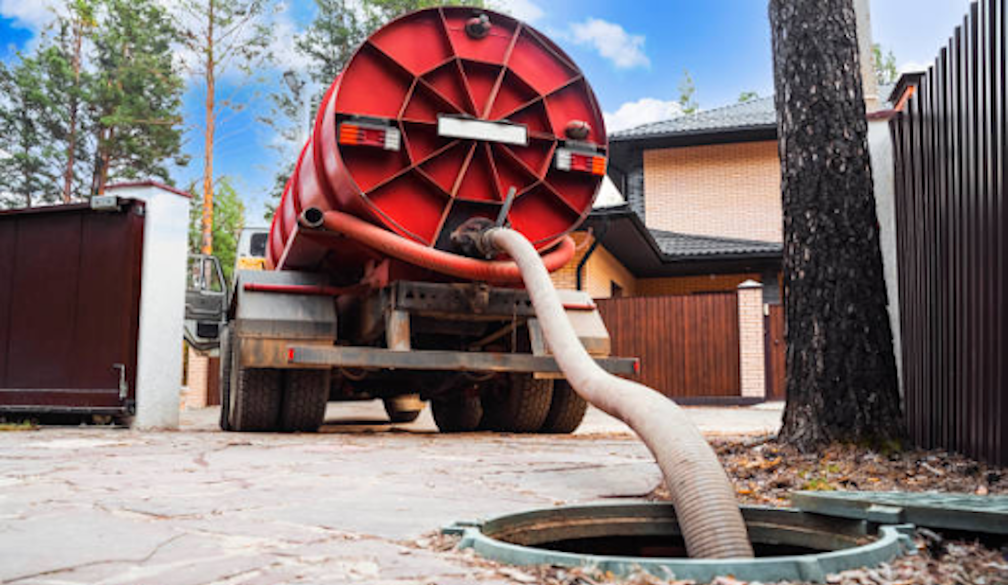How a Septic System Works: A Homeowner's Guide

A septic system is a vital component for managing wastewater in homes not connected to municipal sewage systems. Understanding how a septic system works involves recognising that wastewater first enters a septic tank, where solids settle, and anaerobic bacteria break them down. The partially treated liquid flows into a drain field, where it percolates through the soil, allowing further filtration and treatment before reaching the groundwater. Regular maintenance is essential to ensure the system remains effective and to prevent costly failures.
What is a Septic System?
A septic system is an underground wastewater treatment structure typically used in rural or suburban areas. Its primary purpose is to treat and dispose of wastewater from homes safely and efficiently. The system is designed to separate solids from liquids in wastewater, allowing the water to be gradually filtered back into the soil.
Septic systems are designed to be simple and self-contained. The essential advantage of a septic system is that it treats wastewater on-site, meaning that homes do not need to be connected to a centralised sewage system. While simple, these systems rely on proper design, installation, and regular maintenance to function effectively.
How Wastewater is Treated
The wastewater treatment process in a septic system is pretty straightforward, but each component must perform its function correctly. Wastewater enters the septic tank from the household plumbing. The solids, oils, and liquids separate naturally inside the tank due to gravity.
The heavier solids sink to the bottom, forming the sludge layer, while oils and grease float to the top as the scum layer. The liquid in the middle, known as effluent, is the partially treated wastewater that will move to the drainfield for further treatment. Most of the waste inside the tank is broken down by naturally occurring bacteria, but over time, some solids remain and must be periodically removed by pumping the tank.
After the effluent leaves the septic tank, it travels to the drain field, distributed through a network of perforated pipes. As the liquid slowly trickles through the gravel-filled trenches, the soil filters out harmful substances such as bacteria, viruses, and nutrients. This natural filtration process is crucial to protecting the local groundwater supply.
The Importance of Soil in a Septic System
The soil in your drain field plays a critical role in the success of a septic system. The soil acts as a natural filter, removing contaminants from the effluent as it percolates. The soil types and composition directly affect this filtration's effectiveness. Sandy or gravelly soils are ideal because they allow water to move through more efficiently. Clay soils, on the other hand, may need to absorb water more effectively, which can lead to problems such as flooding or poor drainage.
If the soil in your drain field becomes saturated or compacted, it may not be able to absorb wastewater properly, causing backups or even system failure. This is why choosing the right location and soil type for a septic system is vital during installation. Homeowners should avoid placing heavy objects or structures over the drainfield, which can compact the soil and hinder the system’s performance.
Common Septic System Problems
Septic systems are durable but can develop problems if not properly maintained, making professional septic tank repairs essential when issues arise. One common issue is a clogged drain field, which occurs when solids from the septic tank flow into the drain field and block the pipes. This can happen if the tank is not pumped frequently enough, causing the sludge and scum layers to overflow. When the drain field becomes clogged, wastewater may return to the home or pool on the yard's surface.
Another problem is soil saturation, which can occur after heavy rainfall or if too much water is used in the home. Excessive water in the system can overwhelm the drain field, preventing proper filtration. This can lead to foul smells, slow drains, and even flooding in the yard.
Tree root intrusion is another issue that can affect septic systems. Tree roots naturally seek out water sources and can grow into the septic tank or drain field pipes, causing blockages or damage. Homeowners should ensure trees and shrubs are planted safely from the septic system.
Maintaining Your Septic System
Proper maintenance ensures your septic system functions efficiently and lasts for many years. One of the most critical tasks is having the septic tank pumped regularly. How often this needs to be done depends on the size of your tank, the number of people in your household, and your water usage. Most systems need to be pumped every three to five years.
Homeowners should also be mindful of what they flush or pour down their drains. Avoid flushing non-biodegradable items like wet wipes, feminine hygiene products, or grease, as these can clog the septic tank and drainfield. Using water efficiently can also help prevent overloading the system. For example, staggering laundry loads and fixing leaky taps can reduce the amount of water entering the septic system.
Conclusion
Understanding how a septic system works helps homeowners appreciate the importance of proper maintenance. The system relies on a septic tank to separate waste and a drain field to filter water back into the environment. Regular inspections, pumping, and mindful water use are critical to running the system smoothly. Maintaining your septic system can avoid costly repairs, protect your local groundwater, and ensure your household wastewater is safely managed.


















